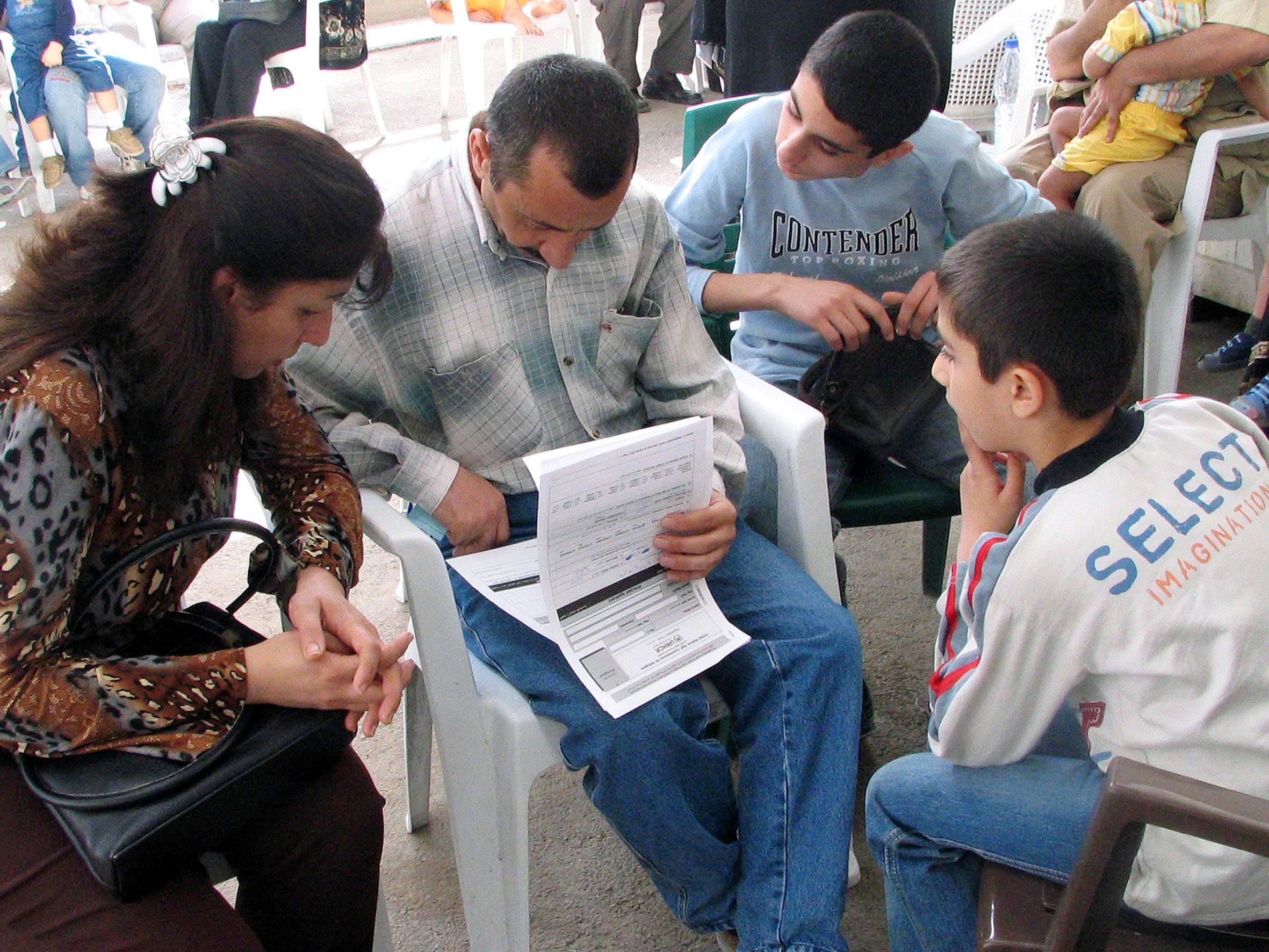"His visit will not help any refugees," said Ayad Tariq, an Iraqi in Damascus. "Honestly, I don't think he can do anything for us. He has to give some money to the Syrians but it won't make a difference to us."
Under an agreement reached between the two countries, the Iraqi government pledged to provide the Syrian government with financial aid to support refugee services, including hospitals and schools. Some of the money will be funded by Saddam-era oil debts Syria still owes Iraq.
Syrian Prime Minister Mohammad Ottri also said the two governments would set up a review committee to analyse the refugee situation to better compensate Syria for the economic burden imposed by the refugees.
Syria, which provides Iraqis with free health-care and education facilities, recently said the annual cost of the Iraqi influx was US$1 billion.
Precise details of the agreements were not released but al-Maliki made clear that before assisting neighbouring countries his priority remained security in Iraq.
|
Iraqi refugees in Syria |
|
|
|
|
The Syrian and Jordanian governments, who between them are dealing with an estimated 2.75 million refugees, have long complained that Iraq was not taking adequate responsibility for the refugee situation.
Following a recent refugee conference in Jordan, the Iraqi government pledged US$25 million in support of regional countries hosting refugees, but Syria and Jordan have demanded greater assistance.
Craig Johnstone, the deputy head of the UN Refugee Agency (UNHCR), recently stated the importance of greater Iraqi involvement in the regional refugee crisis.
"[Syria and Jordan are] concerned about the refugee situation; they're very concerned about the impact upon their own budget" and they are "looking for Iraq" to assume greater responsibility, Johnstone told IRIN.
Education
Al-Maliki's visit came as Syria was bracing itself for the start of a new school year, fearful of the numbers of Iraqis that might be entering the system.
The UN Refugee Agency (UNHCR) has launched a Back to School campaign aimed at getting more Iraqi children into schools. It is estimated that only 35,000 out of an estimated 250,000 school-aged Iraqi children were enrolled in Syrian schools at the end of the last academic year, despite the government's offer of free education for all Iraqi children.
However, with classes of 50 students already reported and with very little new investment in facilities, there are fears that the new campaign might push the system towards crisis.
jl/ar/cb
This article was produced by IRIN News while it was part of the United Nations Office for the Coordination of Humanitarian Affairs. Please send queries on copyright or liability to the UN. For more information: https://shop.un.org/rights-permissions





